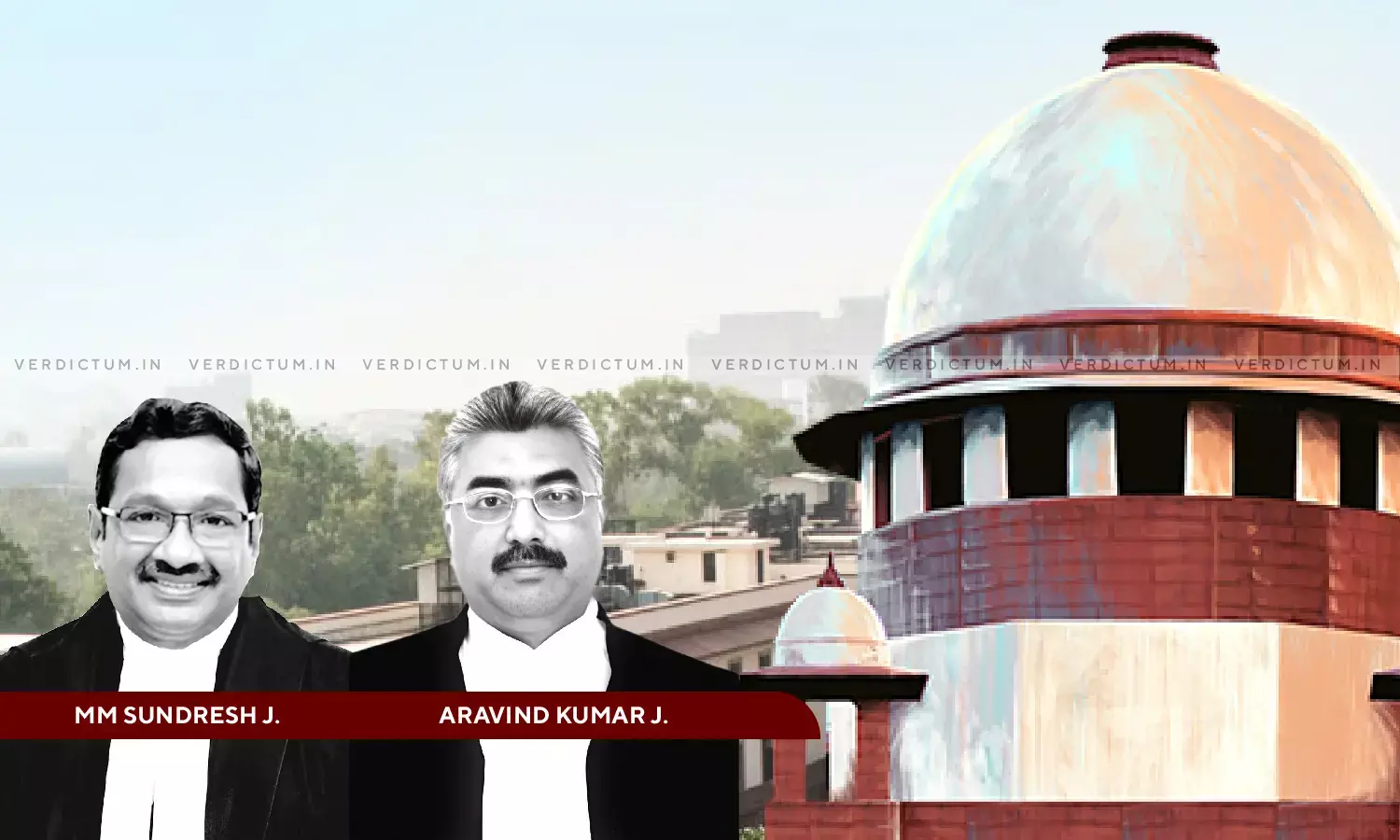In Order To Punish A Contemnor, It Has To Be Established That Disobedience Of Order Is ‘Wilful’: Supreme Court
The Supreme Court emphasised that, in order to punish a contemnor, it has to be established that disobedience of the order is ‘wilful’.
The Court emphasised thus in Contempt Petitions alleging wilful disobedience of the Orders and being filed for punishing the persons for their alleged contumacious act.
The two-Judge Bench comprising Justice M.M. Sundresh and Justice Aravind Kumar observed, “In order to punish a contemnor, it has to be established that disobedience of the order is ‘wilful’. It means knowingly-intentional, conscious, calculated and deliberate with full knowledge of consequences flowing therefrom. It would exclude casual, accidental, bonafide or unintentional acts or genuine inability and would also not include involuntary or negligent actions. The deliberate conduct of a person means that he knows what he is doing and intends to do the same. It is too well settled that if two interpretations are possible, and if the action is not contumacious, a contempt proceeding would not be maintainable.”
The Bench added that the weapon of contempt will not be used for execution of the decree or implementation of an Order for which alternative remedy in law is provided for.
Advocate S. Udaya Kumar Sagar represented the Petitioners while Senior Advocates Dama Seshadri Naidu and R. Anand Padmanabhan represented the Respondents.
Brief Facts -
The Petitioners in the Contempt Petitions contended that the Order was clear and explicit whereunder the Respondent authorities were directed by the Court to issue TDR as per TDR Rules in favour of the respective land owners whose land was acquired for widening of Bellary and Jayamahal Roads and yet Respondents failed to do so and thereby they wilfully disobeyed the directions and orders passed by the Court.
It was also contended that though Bengaluru Development Authority (BDA) and Bengaluru Bruhat Mahanagara Palike (BBMP) on the one hand were taking steps to issue TDR by calling for information from the Petitioners, on the other hand Government of Karnataka passed an Order expressing its difficulty to implement the Orders of the Court on the ground of financial hardship being caused to exchequer which itself is clear wilful disobedience.
The Supreme Court in the above regard, said, “… a Court exercising jurisdiction under the Contempt of Courts Act, 1971 must not travel beyond the four corners of the orders in relation to which contempt has been alleged. That the Court hearing a contempt petition ought to restrict the scope of its enquiry to such directions which are explicit in the judgment or orders of which contempt has been alleged.”
The Court further noted that the civil contempt would mean a wilful disobedience of a decision of the Court and what would be relevant is the “wilful disobedience” and hence, knowledge of having acted in disregard to an order is sine qua non for being proceeded with if there is a deliberate, conscience and intentional act then the jurisdiction can be clutched.
“A theoretical implementation would not amount to compliance. The implementation of the order should be substantial and said order/s should clearly reflect the intention of the authorities of its bonafides, as otherwise it has to be necessarily held that the act of State and its officers are not bonafide but tainted or malafide. Lex non cogit ad impossibilia- Law does not compel a person to do the impossible (AIR 1996 SC 753) Unless an order is absolutely impossible to be executed or carried out, the authorities cannot be heard to contend that financial burden would be a hurdle to implement the orders of this Court”, it remarked.
The Court, therefore, directed that the Respondent authorities to issue the TDR as per the value in favour of the respective claimants within six (6) weeks.
“We also make it abundantly clear that issuance of the TDR certificates would be subject to further orders that may be passed by this Court while disposing of the appeals which are pending before the larger Bench and both parties are at liberty to bring this fact to the notice of the court adjudicating the appeals”, it clarified.
Accordingly, the Apex Court allowed the Contempt Petitions and listed the cases on January 22, 2025.
Cause Title- Chaduranga Kanthiraj URS and Anr. v. P. Ravi Kumar and Ors. (Neutral Citation: 2024 INSC 957)
Appearance:
Petitioners: Advocates S. Udaya Kumar Sagar, Bina Madhavan, Tushar Singh, Nayanatara Bg, AORs Rajat Sehgal, Vandana Anand, Samyak Jain, Lalita Kaushik, Kanchan Kaur Dhodi, T. Harish Kumar, Navneet Dugar, Abhay Kumar, S. S. Shroff, Advocates Subham Kothari, Bharathi Subramanian, Manu Nair, Neelabh Shreesh, Aryan Roy.
Respondents: Senior Advocates Dama Seshadri Naidu, R. Anand Padmanabhan, Shashi Kiran Shetty, AAG Nishanth Patil, AORs V. N. Raghupathy, Adithya Bhat, Pai Amit, Ankur S. Kulkarni, Pramod Dayal, Advocates Adoorya Bomakka Harish, Ayush P. Shah, Vignesh Adithiya S, Pankhuri Bhardwaj, Kushal Dube, Tathagata Dutta, Nikhil Pahwa, Abhiyudaya Vats, Mayank Jain, Uditha Chakravarthy, Tarun, Ruchi Arya, Arimardhan Sharma, and Mirinalini Ramesh.












